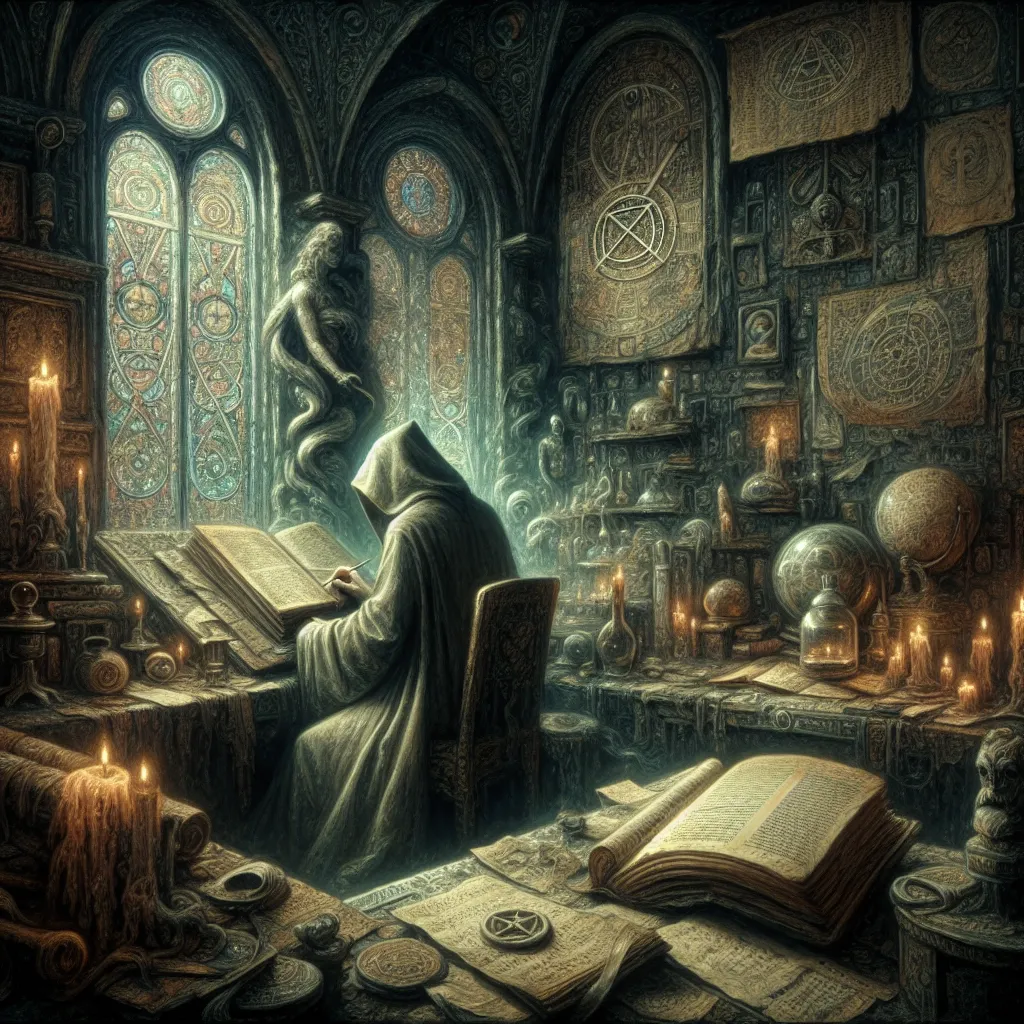
- Published on
- Authors

- Name
- You
Aleister Crowley and the Occult Revival of the 20th Century
Introduction
The 20th century witnessed a remarkable resurgence of interest in esoteric traditions, punctuated by the enigmatic figure of Aleister Crowley. A controversial and polarizing personality, Crowleys contributions to the occult world are multifaceted, ranging from his literary works to his establishment of new religious movements. This article delves into Crowleys pivotal role in the occult revival, his influence on other mystics, and the renewed fascination with ancient wisdom.
The Early Life of Aleister Crowley
Aleister Crowley, born Edward Alexander Crowley on October 12, 1875, in Leamington Spa, England, was destined for a life steeped in controversy and mysticism. Raised in a strict Christian household, Crowley rebelled against his puritan upbringing, ultimately seeking solace and truth in the ancient occult practices.
Table: Key Events in Crowleys Early Life
| Year | Event |
|---|---|
| 1875 | Born in Leamington Spa, England |
| 1895 | Enrolled at Trinity College, Cambridge |
| 1898 | Joined the Hermetic Order of the Golden Dawn |
The Hermetic Order of the Golden Dawn
Crowleys exposure to the Hermetic Order of the Golden Dawn was a turning point. The Golden Dawn, an organization dedicated to the study and practice of the occult, provided Crowley with the foundational knowledge that would influence his later works. Under the guidance of prominent figures such as Samuel Liddell MacGregor Mathers, Crowley delved deeper into ceremonial magick, Kabbalah, and alchemy.
Influence on Contemporary Occultists
Crowleys impact on contemporary occultists cannot be overstated. Figures such as Israel Regardie, Kenneth Grant, and even the founders of Wicca, Gerald Gardner, and Doreen Valiente, were significantly influenced by Crowleys teachings. His works, including "The Book of the Law" and "Magick in Theory and Practice," remain central texts within modern esoteric circles.
Thelema: A New Age of Spirituality
Arguably, Crowleys most enduring legacy is the philosophy of Thelema. Formulated through what Crowley claimed was divine revelation, Thelema emphasizes individual will and the pursuit of one's true path, encapsulated in the phrase, "Do what thou wilt shall be the whole of the Law."
Core Tenets of Thelema
- True Will: Discovering and following one's unique path.
- Love under Will: The harmonization of love and willpower.
- The Aeon of Horus: Crowleys belief in the new era marked by individualism and spiritual freedom.
Table: Thelema's Core Tenets
| Tenet | Description |
|---|---|
| True Will | Discovering and following one's unique path. |
| Love under Will | Harmonization of love and willpower. |
| Aeon of Horus | A new era marked by individualism and spiritual freedom. |
The Resurgence of Esoteric Traditions
The 20th century's renewed interest in esoteric traditions can be attributed in large part to Crowleys influence. His revival of ceremonial magick, combined with his enigmatic personality, captured the imagination of countless seekers of hidden wisdom. Crowleys work served as a catalyst, inspiring a generation of occultists who sought to bridge the ancient and the modern.
Advanced Science Meets Mystical Wisdom
Crowleys methodologies, while mystical, often employed a scientific rigor. He meticulously documented his practices, invoking a sense of empirical study within the realm of the occult. This blending of science and mysticism fostered a holistic approach to understanding the universe and humanity's place within it.
Conclusion
Aleister Crowleys role in the occult revival of the 20th century is a testament to his profound influence on esoteric traditions. Through his literary contributions, establishment of Thelema, and rejuvenation of ceremonial magick, Crowley left an indelible mark on the world of mysticism. As we continue to explore the intersections of advanced science and mystical wisdom, the legacy of Aleister Crowley endures, captivating new generations in the quest for hidden truths.
References:
- Crowley, A. (1904). The Book of the Law. Weiser Books.
- Regardie, I. (1937). The Golden Dawn. Llewellyn Publications.
- Sutin, L. (2000). Do What Thou Wilt: A Life of Aleister Crowley. St. Martin's Press.
